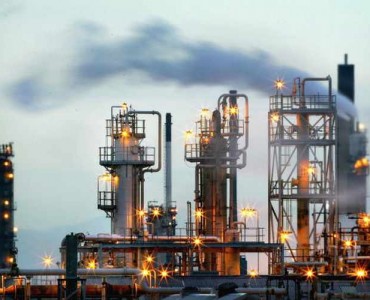Egypt, a natural-gas exporter to markets from China to Chile, is set to become an importer for the first time just as the new government needs energy shipments to revive an economy weakened by civil unrest.
Gas producers including BG Group Plc (BG/) have curbed local production even as demand from electricity plants jumped. That’s prompted the government that took power after Hosni Mubarak was ousted to plan a liquefied natural gas import terminal as soon as May. Royal Dutch Shell Plc (RDSA), the world’s biggest provider of LNG, has begun studying how to supply Egypt.
“We are in discussions with many countries in emerging markets about LNG imports at the moment and Egypt is on the list,” Shell Chief Financial Officer Simon Henry said last month. “Egypt’s economy clearly is growing in terms of its demand for energy, and gas is the first fuel.”
A switch to imports would weigh on Egypt’s current account deficit, potentially boosting calls to devalue the currency and raising pressure on the government to cut fuel subsidies at a time when use of gas-fired power across the Middle East is soaring. As popular unrest continues to challenge the rule of President Mohamed Mursi, the nation needs energy-export revenue to buttress flagging tourism and foreign-currency inflows.
Exports of natural gas rose 2.9 percent to $1.96 billion in the 2011-2012 fiscal year ended in June — making them the biggest good shipped abroad after crude and refined oil, according to Egyptian central bank data.
Import Switch
Oil Minister Osama Kamal said Nov. 26 that industry will be allowed to import gas for the first time in the second half of 2013. Factories will be permitted to import a maximum of 1 billion cubic feet a day, Kamal said in an interview in Cairo.
In the developing world, Egypt is following several gas- exporting countries including Malaysia and Indonesia that have become importers as domestic production fails to keep pace with demand growth. The North African nation exported about a quarter of its gas output in recent years.
Gas consumption in Egypt, which also has discussed importing LNG from Qatar, climbed 10 percent last year, according to BP Plc (BP/) data. That increase has coincided with a decline in production by BG, which said in October its West Delta Deep Marine project wasn’t meeting expectations, as well as lower output from Dana Gas PJSC (DANA) and Apache Corp.
Egypt would need to pay about $10 per million British thermal units to import, based on Poten & Partners prices. That would be about $10 million a day or $3.65 billion a year to import 1 billion cubic feet a day.
LNG Terminal
Egypt is seeking bids for an LNG import terminal that would operate as early as May, according to Egyptian Natural Gas Holding Co., or EGAS. Private-equity firm Citadel Capital SAE (CCAP) and Qatar’s QInvest LLC are participating in the tender, according to a Nov. 22 statement.
Investors from Qatar, the world’s biggest LNG producer, are already present in Egypt’s energy industry, with Qatar Petroleum International Ltd. part-funding a $3.7 billion refinery near Cairo this year.
“We are willing to supply LNG to anybody provided the price is right,” said Nasser Al-Jaidah, chief executive officer of Doha-based Qatar Petroleum. “Egypt has asked for LNG, but they don’t have the receiving terminal” yet.
To retain gas for local use, Egypt reduced LNG output at Gas Natural SDG SA (GAS)’s Damietta plant by 41 percent in the first half of the year from a year earlier. The larger Egyptian LNG plant, a venture between BG, Egyptian General Petroleum Corp., EGAS, Petroliam Nasional Bhd. and GDF Suez (GSZ) SA, had been running below capacity since early 2011.
Growth Plan
Egypt, the Arab world’s most populous nation, is seeking to restore stability and rebuild the economy following the revolt that ousted former President Mubarak. Growth is targeted at 3.5 percent in fiscal 2012-2013, up from 2.2 percent a year earlier, according to Prime Minister Hisham Qandil. Previous governments have said the economy needs to grow at least 7 percent to provide enough jobs.
While the administration that came to power in August has pledged to overhaul the energy industry and curb fuel subsidies, it won’t meet its goal of lowering the grants by 39 percent in the year through June, Oil Minister Kamal said in November.
“A reliable supply of natural gas to both industry and the power-generation sector is a cornerstone of Egypt’s energy security,” Ghada Hammouda, a spokeswoman for Citadel Capital, said in an e-mail. “A long-term solution absolutely must include reform of a failed and economically ruinous energy subsidy program.”
Export Cuts
The subsidy system accounts for more than 20 percent of annual state spending, according to Hammouda, who said oil and gas industry operations aren’t sufficient to support economic expansion. Gas production in Egypt fell 0.1 percent last year to 63.1 billion cubic meters, she said.
The shortage of gas for export has prompted BG, based in Reading, England, to reduce LNG deliveries to other countries. BG told Chile in November it will cut shipments to the nation’s biggest power generator and to state-owned refiner Empresa Nacional del Petroleo next year.
“While this is not formal force majeure, it raises a question as to how much leeway remains between present output versus contractual obligations from Egyptian LNG,” said Peter Hutton, an analyst at RBC Capital Markets in London. “Egypt has been BG’s largest producing country since 2009.”
New Wells
BG has said gas production in Egypt will fall short of its forecast by about 180 million cubic feet a day next year. In an effort to stem the decline, the company plans to bring forward two production phases at the West Delta Deep Marine block and drill new exploration wells in the country.
Apache, the third-largest gas producer in Egypt, said Nov. 1 that output had dropped because of field works. Dana Gas, the sixth-biggest, last month reported a 9 percent decline in extraction in the first nine months of the year.
“Due to ongoing uncertainty around the political situation in Egypt, the board took a prudent decision to implement a more conservative drilling program, inevitably leading to a decline in production,” Dana Gas said in a statement.
Egypt continues to suffer from political unrest, with pro- and anti-government demonstrators staging mass rallies in Cairo and other cities. Recent protests, sparked by a Nov. 22 decree granting Mursi sweeping powers, have boosted local-currency borrowing costs for the state, which may have to devalue the pound to restore competitiveness, said William Jackson, an economist at Capital Economics Ltd. in London. The subsequent reversal of the decree has failed to defuse tensions.
Weakening Currency
The Egyptian pound, subject to a managed float, has weakened about 1 percent since Nov. 22 to 6.1516 to a dollar as of 7:46 p.m. in Cairo, according to prices compiled by Bloomberg. That’s the lowest level in eight years and brings its decline since the start of the January 2011 uprising to 5.4 percent, coinciding with a 58 percent plunge in foreign reserves over the period.
Egypt is pumping about 6 billion cubic feet of gas a day, most of which is supplied domestically, according to Mostafa El Bahr, vice chairman for agreements and exploration at EGAS.
The shortfall of available gas to produce LNG for export creates uncertainty in the market, with traders relying less on “flexible supplies” from the country, said Frank Harris, head of global LNG at consultants Wood Mackenzie.
“When people signed those LNG deals with Egypt back in the beginning of the last decade, there was probably a feeling that it was going to be a good, reliable supplier with plenty of gas,” he said. “Now they may end up being a hybrid importer and exporter.”
Source: Bloomberg











